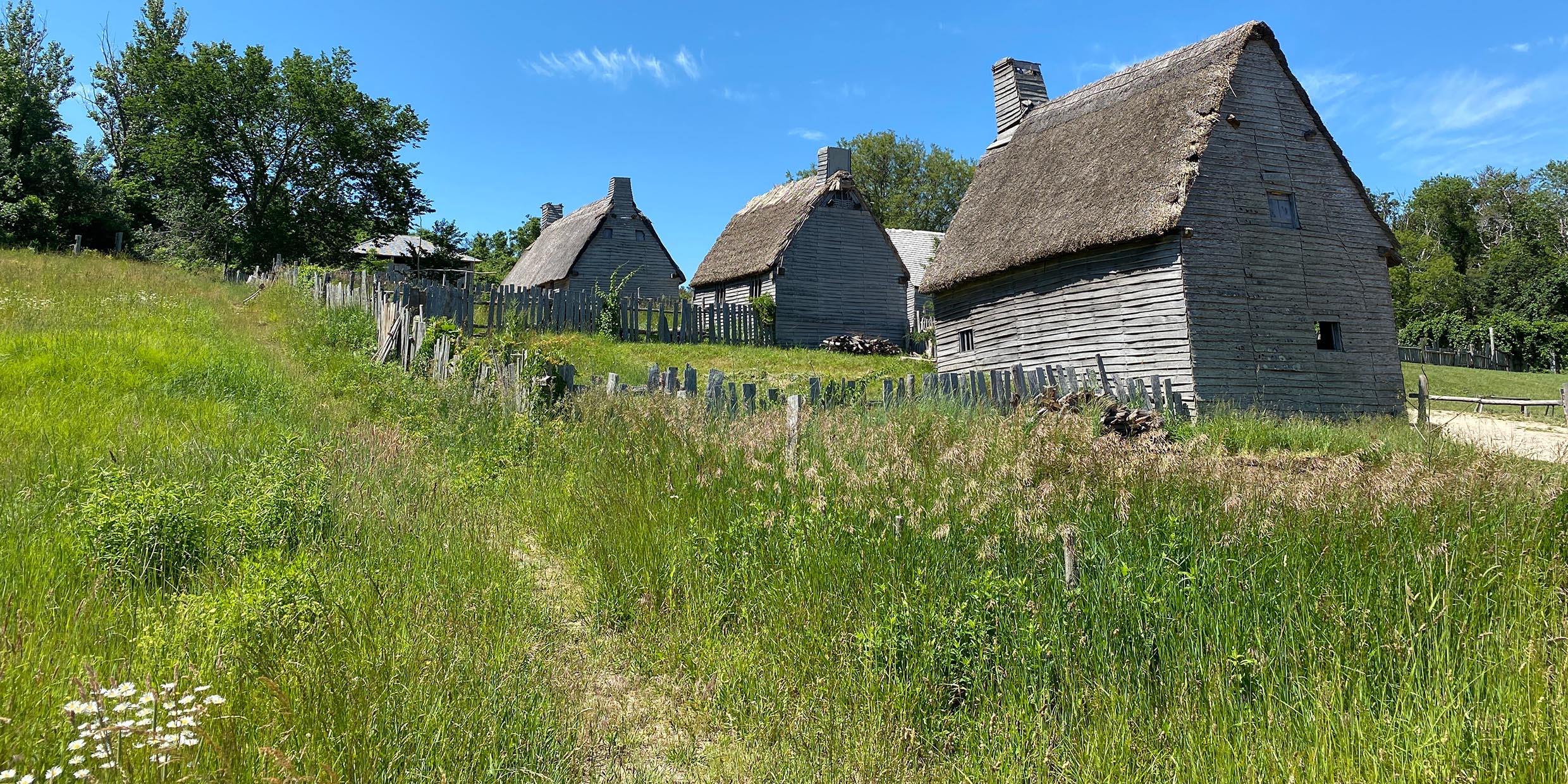Originally published 19 October 1998
Sunlight falls through autumn gold of oaks, maples and hickories, onto a green sub-canopy of sassafras and flowering dogwood, spilling at last onto a sandstone slab, the doorstep of a long-vanished house.
We are deep in the woods of a New England college campus, myself and a group of students. We have come to sit quietly, to journal, to appreciate the quiet serenity of the place.
A careful survey reveals a cellar hole and stone-lined well, both mostly filled with the detritus of centuries, and the collapsed boulder walls of what were once dooryard, fields and pastures, now wooded and bright with dappled light. The place is not on any path. It is insulated by dense growth from the sounds of traffic on nearby roads. A perfect peace prevails, the peace of history.
Two hundred years ago, children tumbled noisily from the farmhouse door, played games in the dusty yard, cuddled dolls, chased dogs. The woman of the house churned and spun. The man tended the family oxen, hoed corn, burned stumps. Sunlight fell flat upon his brow, unimpeded by leaf or limb.
The land about was cleared of trees. An old map of the town, dated 1830, shows far less woods than we have today. Open pastures and meadows stretched as far as the eye could see.
When the first English settlers came to New England, their most characteristic implement was the ax. They hewed English farms out of a wilderness.
Surely, the native Americans they displaced also cleared land for agriculture, small fields near settlements, mostly by burning, and only as necessary. The fields were allowed to revert to forest when nutrients in the soil were exhausted. The community then moved on: the land, the forest were held in common.
By contrast, the property-mad English cleared with abandon and staked a private claim to the land. Trees were the most obvious and accessible resource of the New World. The woods rang loud with the stroke of colonial axes. Sawmills buzzed with the rasp of iron.
In England, limited woodlands had been managed for centuries as a sustainable resource for building materials and fuel. Scarcity was the motive for conservation. But the forests of America presented the appearance of inexhaustibility. Any conservation ethic brought to the New World by the colonists was soon abandoned. The Pilgrims stepped ashore at Plymouth Rock with axes swinging. Forests fell before their onslaught.
In 1621, the first vessel to return to the mother country with the products of the colony carried two barrels of furs; the rest of the cargo was clapboards, “as full as she could stow.”
As the colonies grew, farmers cleared pastures for their cattle, sheep, and swine. They needed firewood for warmth, boards for building. No half-timbered houses for New Englanders; homes were fully timbered. Wooden shingles replaced the thatch and slate roofs of the old country. Rail fences substituted for the living hedgerows they had known at home.
The stone walls that today thread New England’s woodlands were not built because of any shortage of timber for fences, but rather to set aside the boulders that came up out of the ground with plowing and winter frosts. Rocks were the other apparently inexhaustible resource; the soil was chock-a-block with glacial rubble, stones of every size that almost magically emerged from the ground like bubbles rising from the bottom of a pond. There was nothing wrong with the fertility of the soil; it was just that there was so little of it.
At the beginning of the 19th century, when less stony farmland opened up in western New York and Ohio, New England farmers packed up their kids, their churns and spinning wheels, their axes and oxen, and went, worn out with the incessant task of heaving boulders from in front of their plows.
When they departed, their abandoned houses collapsed into cellar holes and rotted. Wells filled in. The noise of iron blades against the trunks of trees went silent. The forest began to reclaim the land.
Today, sitting near the cellar hole of an abandoned 18th-century farm, we feel nostalgia for that vanished world, for the beauty of the wild plants and creatures, for the peace of living a life in the cradle of nature. But, of course, this is an illusion. The “cradle of nature” was actually a cradle of anti-nature.
“In summer, greenness is cheap,” said Thoreau. In the primeval forests of the New World, greenness was not only cheap, it was extravagantly expendable. And the extravagant habits of that time are still with us.
On the long-abandoned farms, chopped out of a vast forest, an ethic of squander became ingrained, to be carried west and applied to other apparently inexhaustible resources of the New World: passenger pigeons, American bison, fertile soil, fresh air, clean water.



